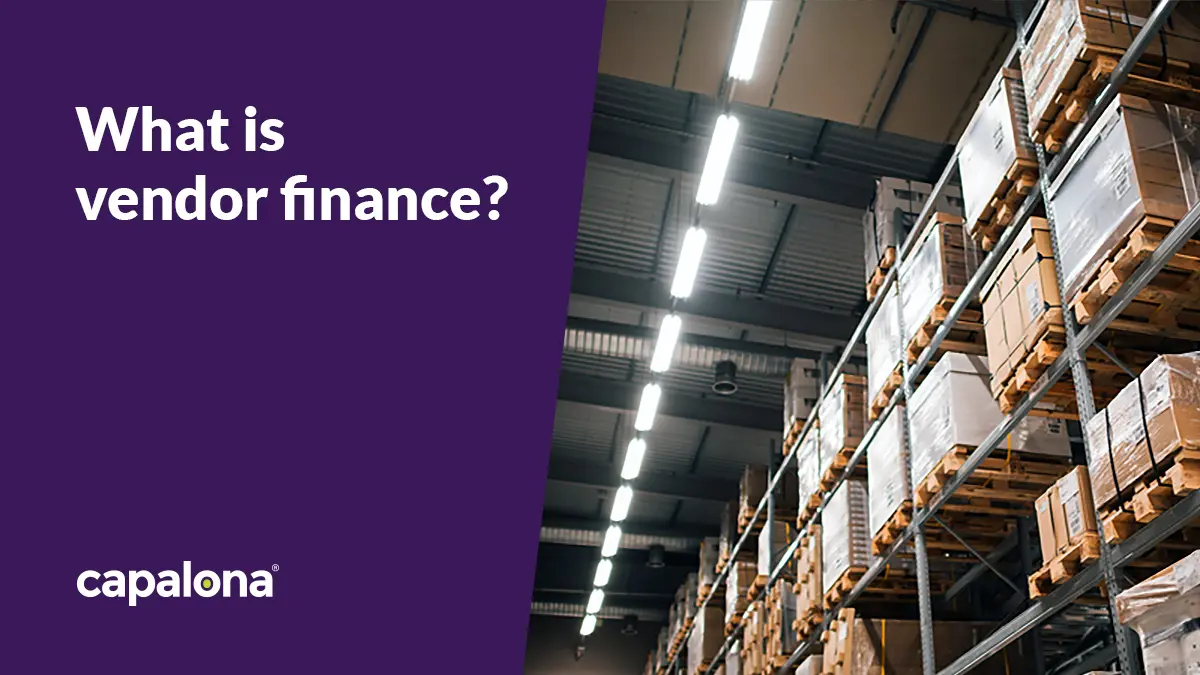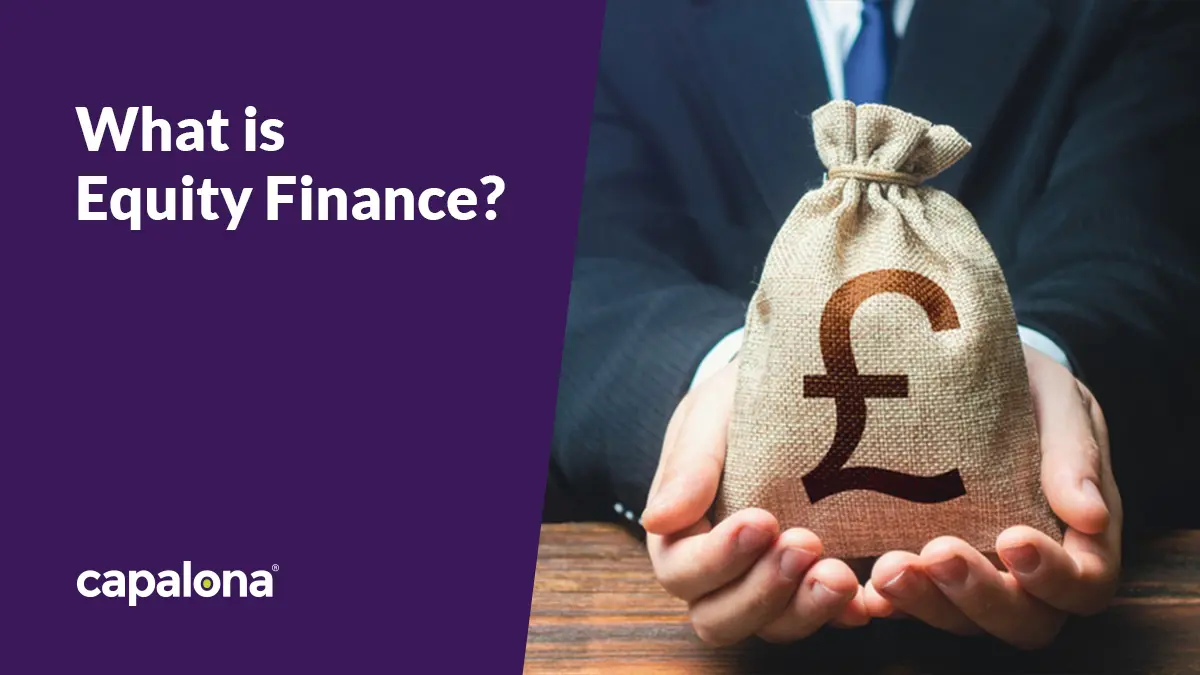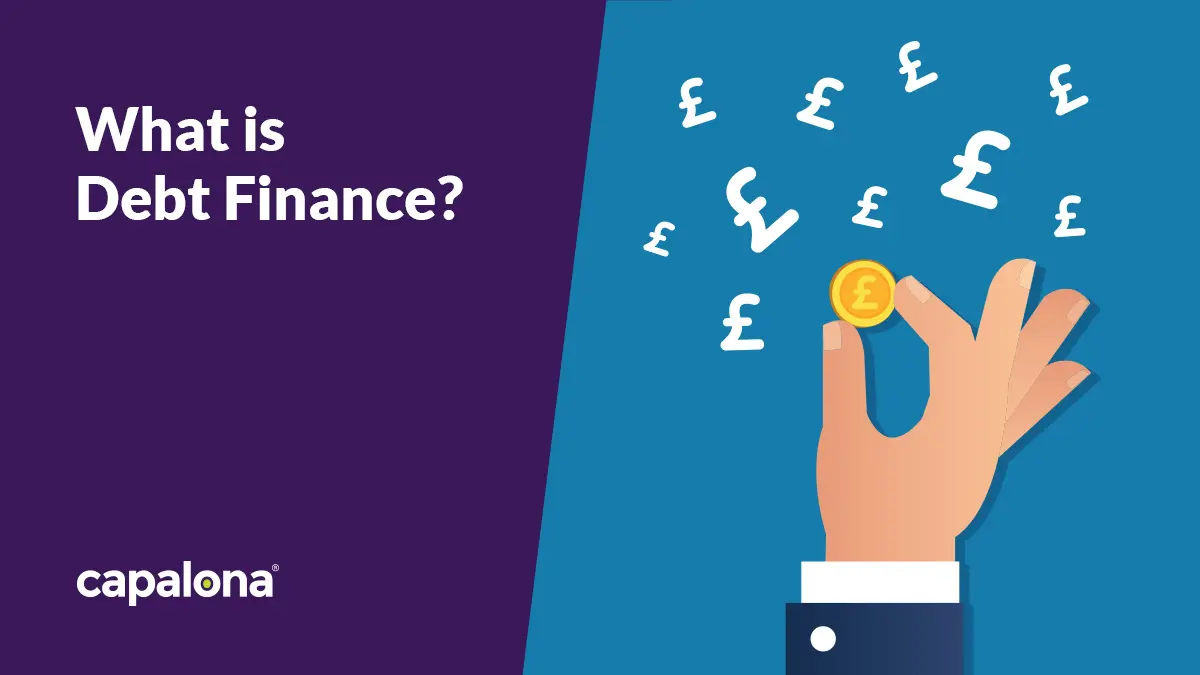Have you ever found your business needing a cash injection to buy something essential from your supplier? If so, you might want to consider approaching your supplier to enter a vendor finance agreement. It’s an excellent alternative for businesses that want to grow and strengthen relationships with suppliers without financial support from mainstream lenders.
In this guide, we’ll be looking into vendor finance. What it is, how it works, the pros, the cons, and whether it could work for you and your business.
What is a vendor?
To dispel confusion, a vendor is a person or business that supplies goods or services to another. This could be as a link in the broader supply chain; selling to another business (B2B), dealing directly with the consumer (B2C), or providing a product or service to a local council or national government (B2G).
Depending on where they’re placed in the supply chain, vendors may produce stock and inventory for use in products that will then be sold on. You’ll find that vendor finance usually occurs in B2B trading arrangements.
What is vendor finance?
As a B2B vendor, you have a vested interest in the success of your customer’s business and their ability to continue purchasing from you. Customers without money are bad for business; that much is clear — and that’s where vendor finance comes in handy.
Vendor finance for business is a way for the vendor to loan the customer money to allow the customer to continue purchasing from them. It’s a way for the vendor to support the customer, ensuring they have the money to make these purchases, leading to the success of the whole supply chain.
An example of vendor finance:
Let’s say you own commercial properties and have been using the same vendor for security solutions for the past few years. You decide to overhaul your entire security system, but you can’t afford to pay outright for the solution.
In this scenario, you’ve already got an established relationship with the vendor, and they’re willing to take a deposit from you initially and then loan you the remaining money needed for the solution.
This type of agreement is usually set up based on a long-standing business relationship, where the customer may be having cash flow issues, and the vendor is in a position to alleviate these financial challenges. Also, if the vendor values their relationship with the customer and has confidence in them being able to pay the money back, providing finance could be a fantastic way to strengthen the relationship.
This support can encourage greater loyalty and longevity from the borrower and is a way to guarantee the customer doesn’t look to your competitors and continues to buy from you.
Other reasons for the vendor to enter into this kind of agreement would be to make a profit on their investment by generating interest on the loan or by negotiating to take a percentage of equity in the borrower’s business.

How vendor finance works
As we’ve mentioned, this type of finance most commonly exists between two businesses with an established relationship; they’re familiar with each other, and the vendor is satisfied that the borrower is likely to repay the loan.
The borrower will repay the loan within a pre-agreed timeframe in instalments, including any interest to be incurred by the borrower. The repayments will be made regularly, just like any other loan.
The deal agreed on will depend entirely on the industry, the volume of goods, and the type of relationship. Occasionally vendors may decide to keep their rates reasonably low to incentivise sales and maintain a positive ongoing collaboration.
That being said, interest rates for this kind of finance will usually range between 5-10%, a higher rate than a high street bank may offer.
But because the vendor can make their lending decision based on their real-life experiences working with the borrower, they’re able to lend money quickly and easily, which is a very different experience when lending from a mainstream loan provider.
The types of vendor finance
There are two types of vendor finance agreements, debt financing and equity financing, with each having very different impacts on the financial future of the borrower’s business.
Debt Vendor Financing
This repayment method is very similar to your traditional bank loan, personal loan or credit card repayment. The borrower will receive the money, potentially in the form of goods or services, from the vendor at a pre-agreed interest rate and then will continue to repay the debt over the agreed time frame.
If the borrower cannot repay the vendor, the loan must be written off as a bad debt, bringing the relationship between the vendor and customer to an end.
Equity Vendor Financing
Working similarly to debt financing, but with one significant difference: in exchange for goods and services, the borrower will provide the vendor with a pre-agreed percentage of equity in their business, making them a stakeholder. In addition, the borrower will not make any ongoing cash payments to the vendor; instead, the vendor will take a percentage of the overall profits of the business for its lifespan while having a percentage say in the business strategy.
Equity Vendor Financing is a popular type of financing for start-up businesses, as they'll continue to gain access to the goods and services they require to thrive, potentially at preferential rates, based on the vendor's vested interest in the company's profitability. The start-up can also lean on the expertise of the vendor as they begin to evolve.
The benefits of vendor finance
There are several advantages of opting for a vendor financing agreement, should the opportunity arise.
- Firstly, it allows you to buy supplies for your business while keeping your cash flow flexible and free to be used elsewhere in the business.
- There would also be no need to meet the requirements of the average high street lender, and if turned down by a lender such as a bank, there may be a good chance the vendor would lend the money to continue the working relationship.
- Although rare, some vendors, depending on the situation, won't charge the borrower any interest (or agree to very little interest).
- Finally, if giving up equity in the business, the borrower will likely inherit the vendor's business contacts and experience, which may present additional benefits such as broadening networks and adopting growth strategies.
Disadvantages of vendor finance
Like with any form of finance, there are disadvantages to be aware of before signing up to receive vendor finance.
- It's important to note that vendor financing isn't something that all vendors provide. They might not be able to provide the required loan amount, and some vendors might not value the relationship in the same way and may be unwilling to lend any money.
- Taking a loan with your vendor will certainly restrict you from working with other suppliers. You might only be able to use the money with the vendor that provided the finance - this may continue until the debt is repaid or indefinitely if equity is exchanged.
- Finally, interest rates provided by the vendor could be higher than mainstream lenders due to the risk taken on by the vendor twinned with the borrower's limitations when accessing the cash elsewhere.
Alternatives to vendor finance
This type of finance might not be the best option for your business. Instead, here are some alternatives to vendor finance you might want to consider with Capalona:
Business Loans
Whether secured or unsecured, a business loan can be a great way of obtaining the capital you need to invest in your business.
Invoice Finance
If you have cash tied up in outstanding invoices, and need to gain access to this money quicker than your clients might pay you, Invoice Finance might be a great option.
Merchant Cash Advance
You might have a seasonal business with an income that may ebb and flow. Merchant Cash Advance can be a great option if you take credit and debit card payments, with a percentage taken in repayment with every sale made throughout the year until the debt is repaid.
Researching financing options can be tedious — that’s why at Capalona, we help thousands of SMEs every day quickly and effortlessly explore a variety of financial solutions available to them. Alongside our panel of trusted UK lenders, we can match you to the best deals out there - Get your FREE, no-obligation quote.






